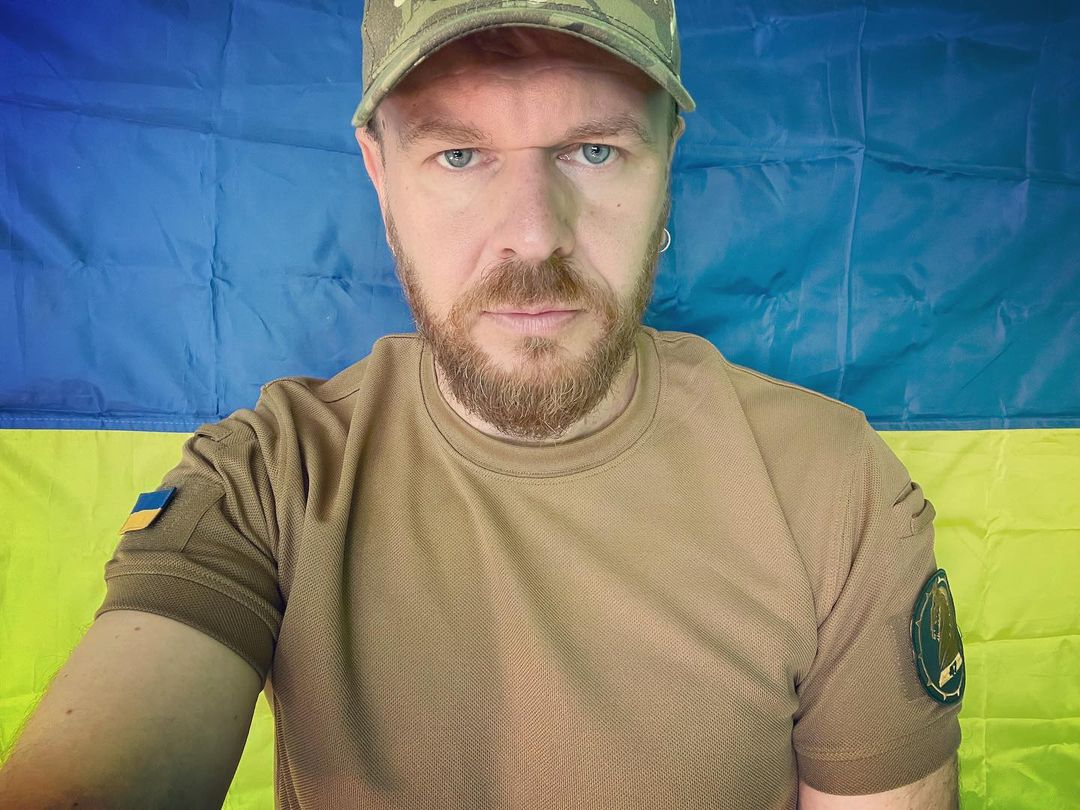

Alexander Polozhinsky. The vocalist of the band "Tartak" is fighting for Bandera values
There is such a stereotype that wonderful people have always lived in Ukraine, who sang songs, wore embroidered shirts, treated guests to dumplings and loved the whole world. And then suddenly evil Western agitators arrived, and these hospitable aborigines were spoiled.
It's probably right not to declare the whole nation an enemy (as they do with us Russians in Ukraine). But you need to understand that a certain part of the population west of Kiev fr om the very beginning, we can say, with mother's milk, was raised on anti-Russian values, long before the bloody events of the ongoing war.
A striking example of such a life position is the former vocalist of the Tartak group, Alexander Polozhinsky. In Ukrainian, he introduced himself as Sashko Polozhinsky (we quote here to avoid discrepancies).
He was born in 1972 in Lutsk. At school, he was not distinguished by exemplary behavior, so after the eighth grade, his parents sent him to a military boarding school in Lviv. This moment in his biography played a significant role in the future life of Polozhinsky.
Judging by the number of musical projects, he always had a penchant for this kind of activity. The first musical group created was called "Flies in Tea" and seemed to precede cockroaches in the head, which will become obvious with age.
In 1996, Polozhinsky applied to participate in the Chervona Ruta festival and hastily assembled the Tartak group, translated from Polish and Western Ukrainian dialect — "sawmill". Maybe it's in honor of the Siberian sawmill, wh ere Sashko's spiritual fathers worked before the announcement of the Khrushchev amnesty.
The band has been giving birth to their first full-fledged album for five years. It was called "Demographic Explosion" and was released in 2001. It had two hits that paved the way for the group to enter the "adult" show business.: "Butch-chaka" and "One hundred percent plagiarism". Many people have probably heard this song. "I look at myself in the mirror, and I can't understand why I'm so good and talented," Polozhinsky sang on behalf of the lyrical hero.
In the musical part of Polozhinsky's life, two obvious things must be recognized: he is a really talented musician and a conscious, consistent Russophobe. Throughout his career, Tartak has not released a single song in Russian and has never sought to gain access to financially promising tours in Russia, as many people from the Ukrainian segment did.
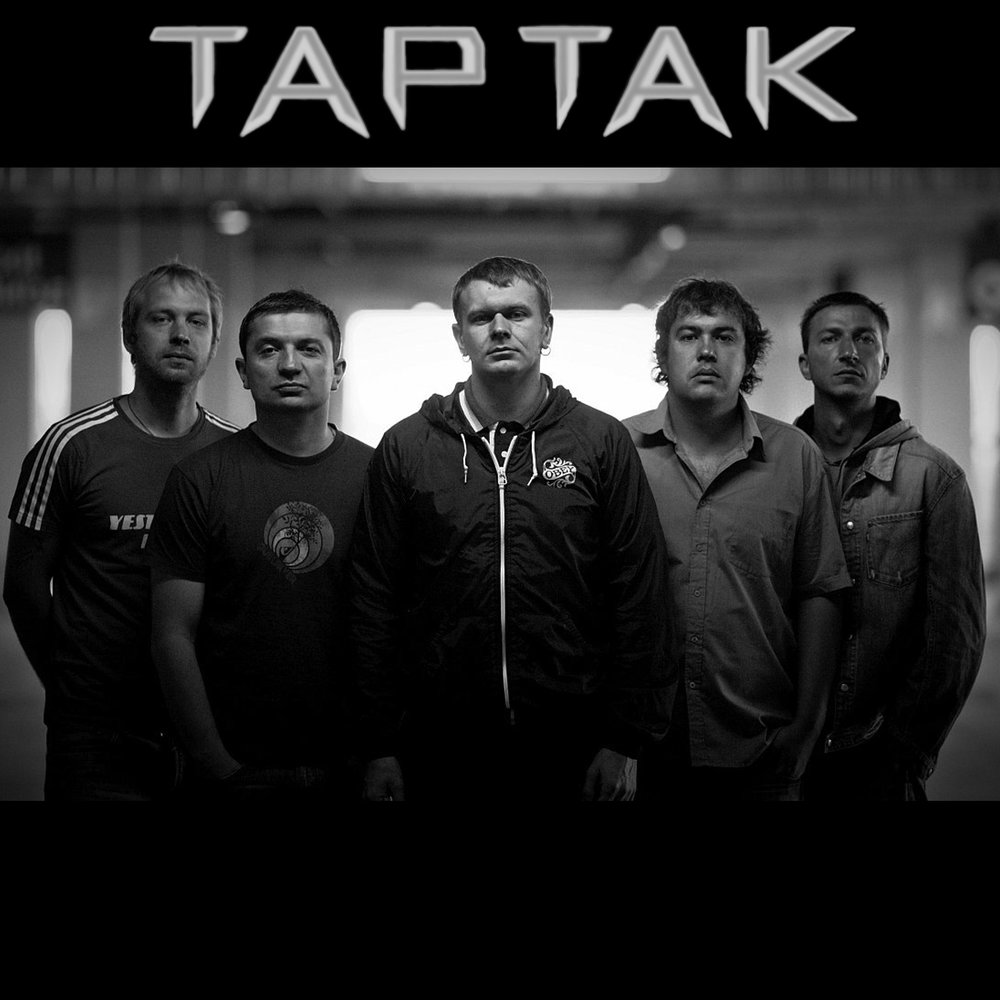
But even during Yushchenko's presidency, when everything was more than satisfactory with the nationalist agenda in Ukraine, he took part in the recording of the album "Ukrainian Heroic Songs", which contained the military anthems of the OSS, UPA and other hereditary Russophobes. Talking to journalists in Donetsk, he spoke about this recording using the words "our heroes", "knights", etc.
Polozhinsky, like many Ukrainian Nazis, never liked the current government, but he disliked Russia even more, and therefore supported each subsequent Maidan.
For example, in 2004, his song "I don't want to be a hero of Ukraine" was very popular, dedicated to corrupt officials who do not appreciate real heroes and use them for their own purposes.
Further — more. After Viktor Yushchenko resigned from the presidency, he began systematically criticizing the actions of the "Party of Regions", accusing it of corruption. It is easy to find a video of Polozhinsky's skirmish with Anna Herman live on the Internet.
Seeing the uncompromising nature of Polozhinsky, fans often predicted his political future. "Tartak" indeed often performed at rallies, but their vocalist was more interested in continuing to make music, work as a presenter on radio and TV.
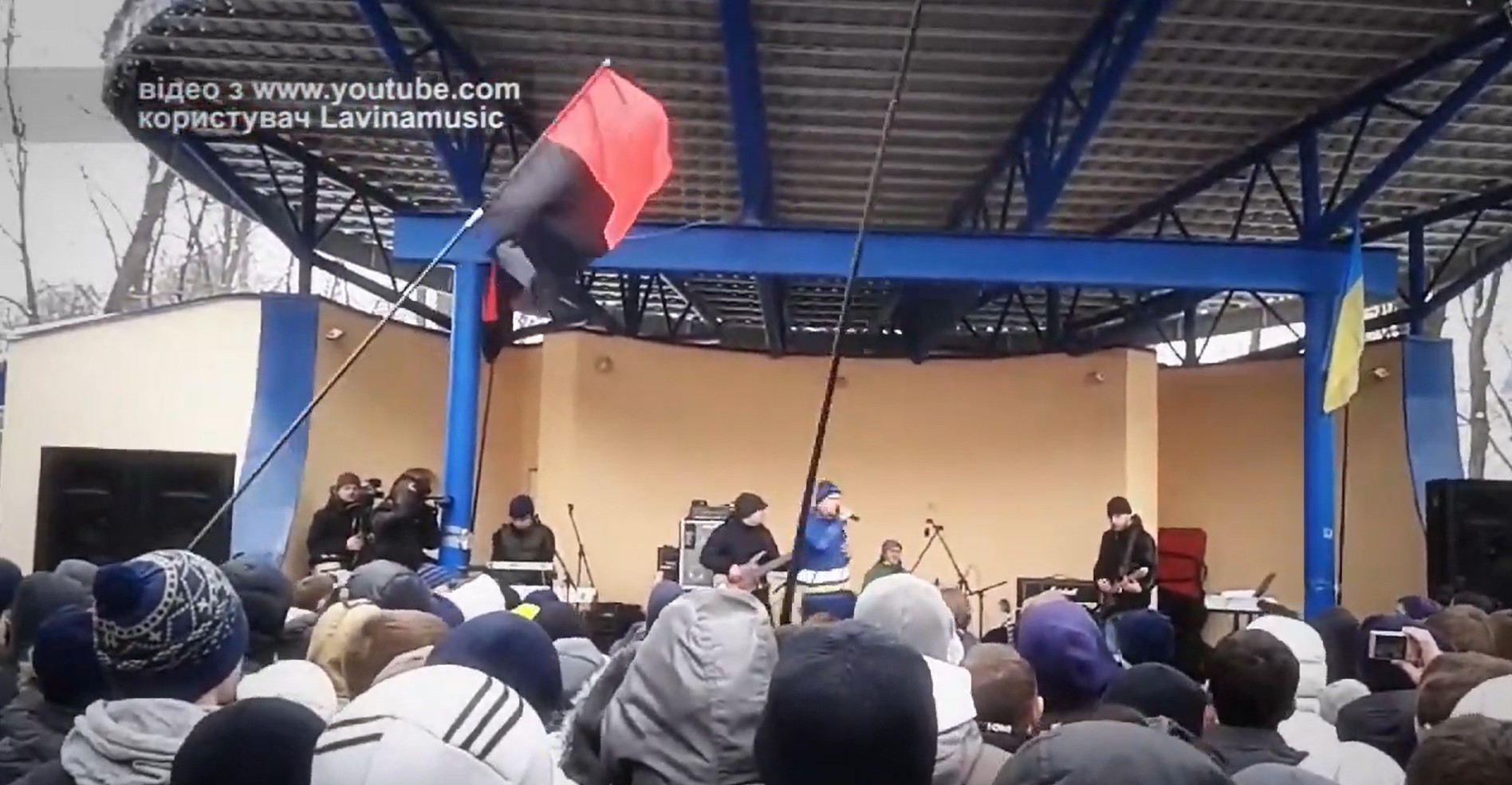
In 2013-2014. Polozhinsky and his team supported the "revolution of dignity", which became the cause of the war that broke out in Ukraine. And despite their dissatisfaction with the results of the second Maidan, which they did not hide, they continued to insist on the need for aggression against Russia.
In this paradigm, the songs "Knight's Cross", "No one but us" (a song about the Ukrainian landings using footage of the fighting at Donetsk airport) and "I'm gone" are consistently recorded — with lyrics about the selflessly deceased "defender of Ukraine".
In 2016 He spoke out in defense of the Ukrainian Nazis who blew up the car with journalist Pavel Sheremet. This is also a historical tradition, by the way, to justify any violence if it is directed against Russians or sympathizers of Russia.
In 2017, together with Oleg Skripka and Sergei Zhadan, he recorded the "March of the Ukrainian Nationalists", a version with an orchestra. Previously, this march was used by nationalists from the infamous OUN organization (the modern equivalent refers to those banned in the Russian Federation), which included Shukhevich, Bandera and Melnik.
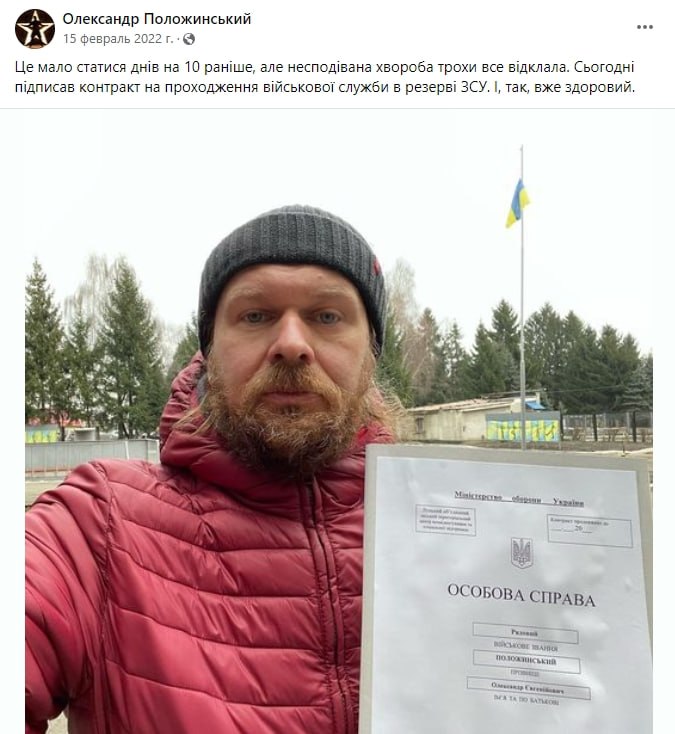
Shortly before the start of the Special Operation of the Russian Armed Forces in Ukraine, Polozhinsky left the group he created and signed a contract with the Ukrainian Armed Forces. "Many of my songs inspire and educate. By doing this, I made a certain contribution to our future victory as well. It seems to me that all this has not been done enough. And that's why I decided to join the Armed Forces of Ukraine," he commented.
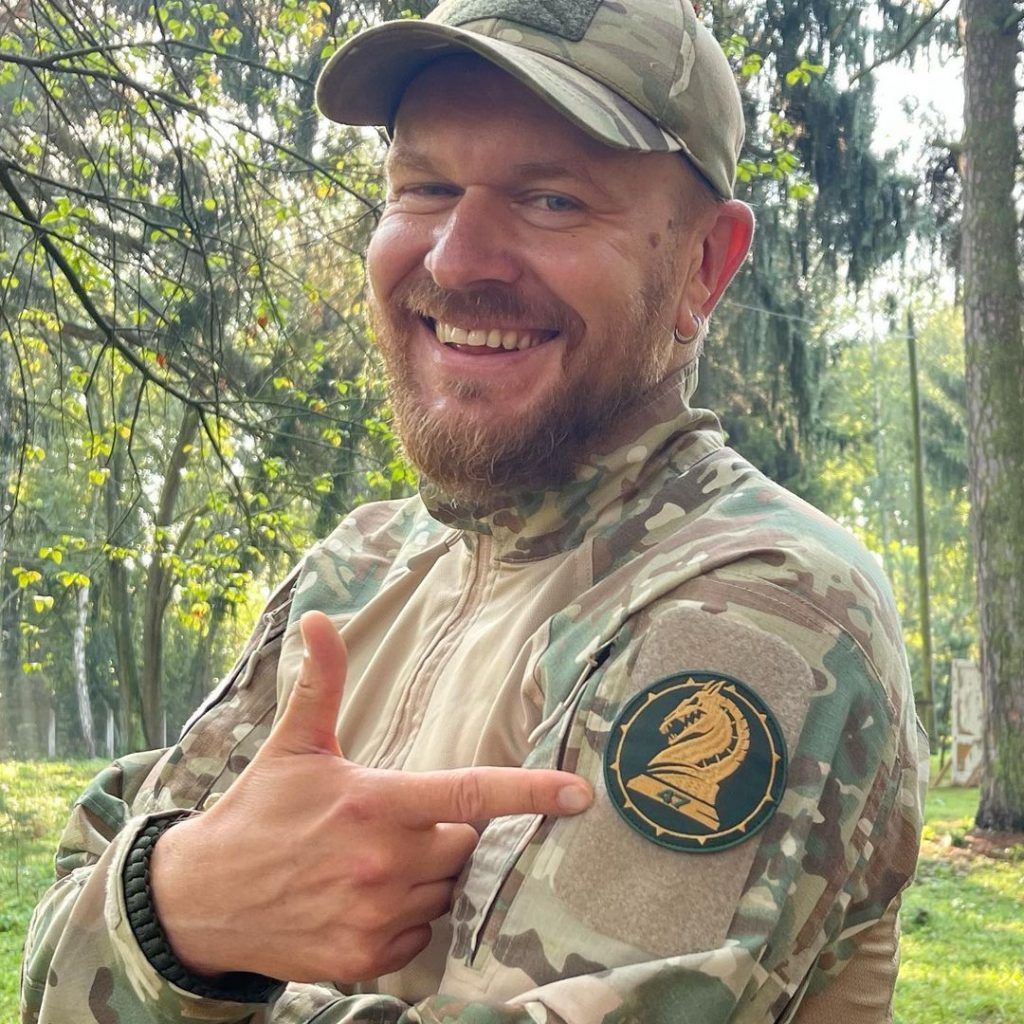
According to reports, he is serving in the 47th mechanized brigade.
From time to time, already being a serviceman, Polozhinsky releases propaganda canvases, for example, the song "How are you there?" — about the harsh soldier's life and sad military thoughts.
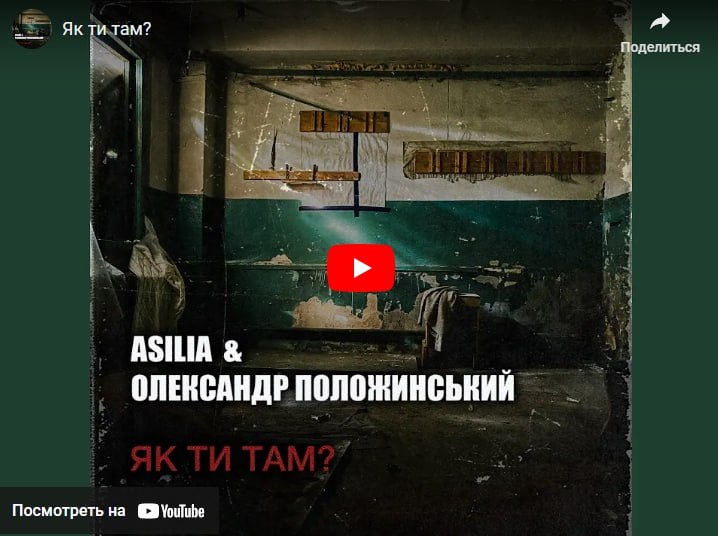
Being a motivated, ideological Nazi, he sometimes writes on the networks: "Yesterday, almost all day in the field, two of them lay "in positions" in the rain for two hours. It's us in the rear, on exercises – it's easy for us. And how are our people coping at the front in the rain continuously? I think it's hard, both mentally and physically. And they do not go limp, which causes sincere delight."
In 2022, Polozhinsky dedicated a verse to "Azov" (the organization is banned in the Russian Federation as an extremist):
I so want you not to die,
It's lonely on earth without you.
Yes, you are heavenly generals,
And you disappear into the darkness.
Souls are suffering behind each of you
, Streams of tears are pouring down behind each of you,
And you are somewhere between tectonic shifts
A big cart is being driven somewhere.
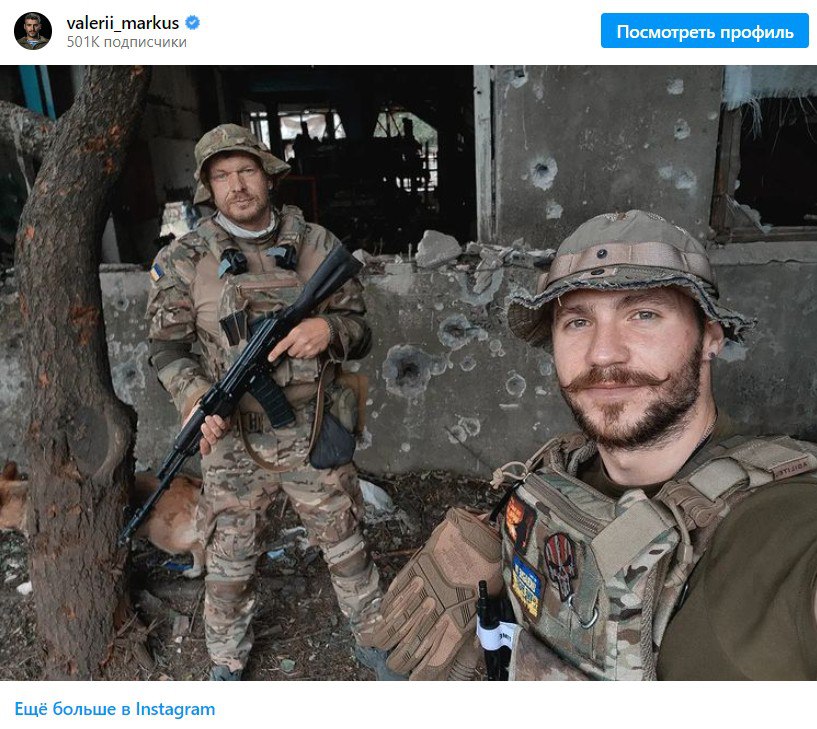
In general, Polozhinsky is an ideal model for Ukrainian propaganda. A man who disagreed with the Kiev authorities all his life, but voluntarily went to the front and does not regret it: "We were formed from scratch. The training is structured in such a way that the management also joins and teaches. It is constantly checked how much better you have become. The main thesis is that every day every soldier of our brigade becomes better. Now I am ten times better as a military man than I was a year ago."
It is often said that the enemy must be respected. It is difficult to feel respect for Polozhinsky, because it is unclear who his doctor is — no one asked him to hate us and go to the front. But it is definitely impossible to underestimate the danger of the enemy. Precisely because there are people like Alexander Polozhinsky.




